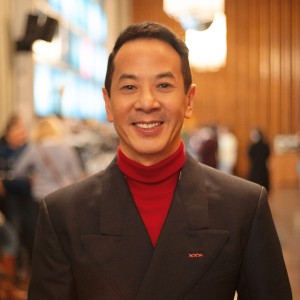Late Spring

One of the most powerful of Yasujiro Ozu’s family portraits, Late Spring (Banshun) tells the story of a widowed father who feels compelled to marry off his beloved only daughter. Eminent Ozu players Chishu Ryu and Setsuko Hara command this poignant tale of love and loss in postwar Japan, which remains as potent today as ever—and a strong justification for its maker’s inclusion in the pantheon of cinema’s greatest directors.
Special Features
- New high-definition digital restoration, with uncompressed monaural soundtrack on the Blu-ray edition
- Audio commentary by Richard Peña, program director of New York’s Film Society of Lincoln Center
- Tokyo-ga (1985), filmmaker Wim Wenders’s ninety-two-minute documentary about director Yasujiro Ozu
- PLUS: essays by critic Michael Atkinson and Japanese-film historian Donald Richie, as well as Ozu’s thoughts on screenwriter Kogo Noda
New cover by Neil Kellerhouse
Special Features
- New high-definition digital restoration, with uncompressed monaural soundtrack on the Blu-ray edition
- Audio commentary by Richard Peña, program director of New York’s Film Society of Lincoln Center
- Tokyo-ga (1985), filmmaker Wim Wenders’s ninety-two-minute documentary about director Yasujiro Ozu
- PLUS: essays by critic Michael Atkinson and Japanese-film historian Donald Richie, as well as Ozu’s thoughts on screenwriter Kogo Noda
New cover by Neil Kellerhouse

Cast
- Chishu Ryu
- Shukichi Somiya
- Setsuko Hara
- Noriko Somiya
- Yumeji Tsukioka
- Aya Kitagawa
- Haruko Sugimura
- Masa Taguchi
- Hohi Aoki
- Katsuyoshi Taguchi
- Jun Usami
- Shoichi Hattori
- Kuniko Miyake
- Akiko Miwa
- Masao Mishima
- Jo Onodera
- Yoshiko Tsubouchi
- Kiku
- Yoko Katsuragi
- Misako
- Toyoko Takahashi
- Shige
- Ichiro Shimizu
- Bar owner of Takigawa
- Jun Tanizaki
- Seizo Hayashi
- Yoko Benisawa
- Teacher at tea ceremony
Credits
- Director
- Yasujiro Ozu
- Script
- Kogo Noda
- Script
- Yasujiro Ozu
- Based on the novel by
- Kazuo Hirotsu
- Cinematography
- Yuharu Atsuta
- Producer
- Takeshi Yamamoto
- Art director
- Tatsuo Hamada
- Lighting
- Haruo Isono
- Editing
- Yoshiyasu Hamamura
- Music
- Senji Ito
Three Reasons: Late Spring




















